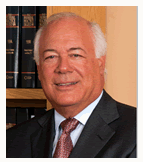Getting a traffic ticket in Florida can be frustrating, but you have options to contest it. Understanding the process and your rights can help you fight a ticket effectively and possibly avoid fines, points on your license, and increased insurance rates.
Understand Your Ticket
The first step in fighting a traffic ticket is to carefully read the ticket and understand the violation you are being accused of. Common traffic violations in Florida include speeding, running a red light, and reckless driving. Each violation has different consequences, so knowing what you are dealing with is essential.
Decide How to Plead
When you receive a traffic ticket, you have three options:
- Pay the Fine: Paying the fine is an admission of guilt, which means you accept the points on your driving record.
- Attend Traffic School: For minor violations, you may have the option to attend traffic school. This can help avoid points on your license and may reduce your fine.
- Contest the Ticket: If you believe you were wrongly cited, you can choose to contest the ticket in court.
Gather Evidence
To successfully fight a traffic ticket, you need to gather evidence to support your case. This can include:
- Photographs: Take pictures of the scene where the alleged violation occurred. This can provide context and support your version of events.
- Witness Statements: If there were any witnesses, get their contact information and ask them to provide statements.
- Documentation: Collect any relevant documents, such as GPS data, dashcam footage, or maintenance records if applicable.
Prepare Your Case
Preparing your case involves organizing your evidence and developing a clear argument. Consider the following points:
- Challenge the Officer’s Observations: Question the officer’s perspective and the accuracy of their observations. For example, were there obstructions that might have affected their view?
- Question the Equipment: If the ticket was issued based on radar or another device, question its accuracy and whether it was properly calibrated.
- Highlight Any Errors: Look for any mistakes on the ticket itself, such as incorrect information about your vehicle or the location of the alleged violation.
Attend the Hearing
When contesting a traffic ticket, you will need to attend a court hearing. Be punctual, dress appropriately, and address the judge respectfully. Present your evidence clearly and succinctly, and be prepared to answer any questions from the judge or the officer who issued the ticket.
As renowned attorney Clarence Darrow once said, “Justice has nothing to do with what goes on in a courtroom; Justice is what comes out of a courtroom.” This quote underscores the importance of preparing your case thoroughly to achieve a fair outcome.
Consider a case where a driver was wrongly cited for speeding. By gathering GPS data from their vehicle and presenting dashcam footage that showed their speed at the time of the alleged violation, they were able to prove their innocence. This case illustrates how diligent preparation and clear evidence can lead to a just result.
The key takeaway is that fighting a traffic ticket in Florida requires a methodical approach. Understanding your ticket, gathering evidence, and presenting a well-prepared case can significantly increase your chances of a favorable outcome.
If you need assistance fighting a traffic ticket in Florida, contact Roy Kahn, P.A., at 305-358-7400 or email rjk@roykahnpa.com. With over 35 years of experience, our team is dedicated to providing expert legal representation to help you navigate the complexities of traffic court and protect your driving record.
 Roy J. Kahn, with years of legal experience in a wide variety of criminal law, heads a “boutique” firm, which means that your attorney is Roy J. Kahn, not a paralegal. If you have been charged or are about to be charged with a crime—or if you have been contacted to be a witness in a federal grand jury case, you need a qualified defense. You should consult with an attorney immediately and know that you have a right to make no statement until you have consulted with an attorney To contact Mr. Kahn, he can be reached at 305-358-7400.
Roy J. Kahn, with years of legal experience in a wide variety of criminal law, heads a “boutique” firm, which means that your attorney is Roy J. Kahn, not a paralegal. If you have been charged or are about to be charged with a crime—or if you have been contacted to be a witness in a federal grand jury case, you need a qualified defense. You should consult with an attorney immediately and know that you have a right to make no statement until you have consulted with an attorney To contact Mr. Kahn, he can be reached at 305-358-7400.

Recent Comments